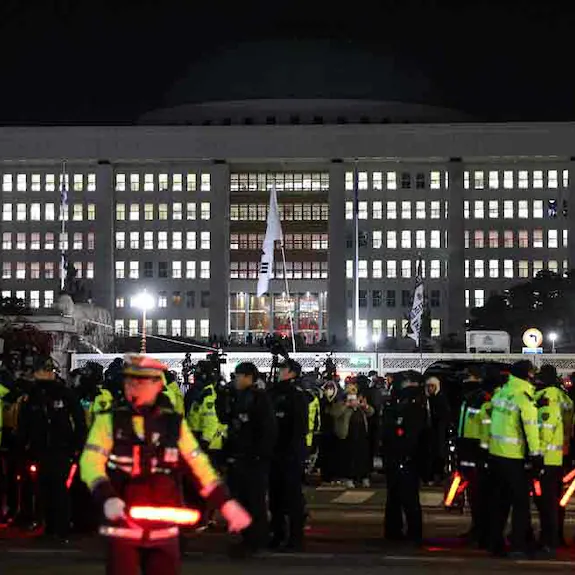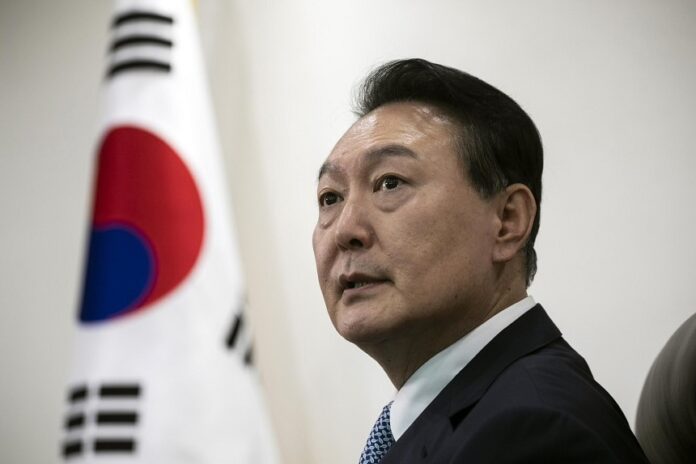SEOUL, South Korea — South Korea’s National Assembly is preparing for a pivotal vote on Saturday to decide whether to impeach President Yoon Suk Yeol. The move comes after Yoon declared emergency martial law earlier this week, a decision that plunged the nation into political and social turmoil. The martial law order, which was met with widespread backlash from lawmakers and the public, was abruptly lifted just hours later under mounting pressure.
The impeachment vote is expected to take place at approximately 5 p.m. local time (3 a.m. ET). Six opposition parties initiated impeachment proceedings against Yoon, citing his controversial actions as a breach of constitutional and democratic norms.
The Martial Law Controversy
President Yoon’s declaration of martial law, ostensibly to address alleged “anti-state activities” and a “legislative dictatorship” by the opposition-controlled National Assembly, marked one of the most dramatic moments in South Korea’s modern political history. The order included suspending all political activities, banning legislative meetings, and curtailing press freedoms.
The swift reversal of the martial law declaration under public and legislative pressure has only added to the political chaos, with critics accusing Yoon of recklessly overstepping his authority. Protesters have taken to the streets in large numbers, condemning the move as an assault on democracy.

Impeachment Vote Dynamics
The impeachment process has gained significant momentum, with six opposition parties uniting against the president. Together, the opposition bloc controls 192 seats in the 300-member unicameral legislature, just eight votes shy of the two-thirds majority required to pass the motion.
While the opposition has a strong base of support, the vote will ultimately depend on whether they can sway independents or members of Yoon’s conservative party to join the impeachment effort. Political analysts suggest that Yoon’s sudden reversal on martial law may have alienated even his own party members, potentially increasing the likelihood of impeachment.
Public Reaction and Fallout
Public opinion has played a critical role in shaping the impeachment proceedings. Large-scale protests have erupted across the country, with citizens demanding accountability for what they view as an abuse of power. Many South Koreans are expressing frustration over the political instability, fearing long-term damage to the country’s democratic institutions.
Meanwhile, legal and constitutional experts are debating the implications of Yoon’s actions. Some argue that the initial declaration of martial law constituted a severe violation of the separation of powers, while others contend that the president’s quick reversal demonstrates his acknowledgment of public and legislative pushback.
International Attention
The unfolding crisis in South Korea has drawn attention from the international community. The United States, a key ally, has called for calm and respect for democratic processes. Other nations in the region, including Japan and China, are closely monitoring developments given the potential impact on regional stability.
What’s Next?
If the impeachment motion passes, it would lead to the temporary suspension of President Yoon’s powers while the Constitutional Court reviews the case. The court would then have up to 180 days to determine whether to uphold the impeachment, which could permanently remove Yoon from office.
Saturday’s vote will be a critical moment for South Korea, with far-reaching implications for its political future. As lawmakers prepare to cast their votes, the nation holds its breath, bracing for what could be one of the most consequential decisions in its history.


